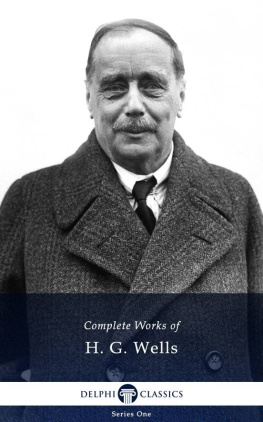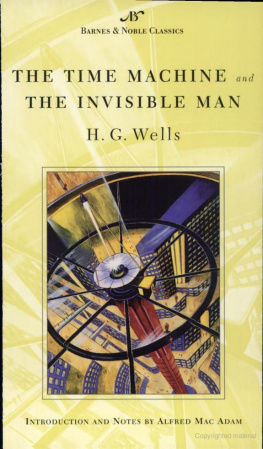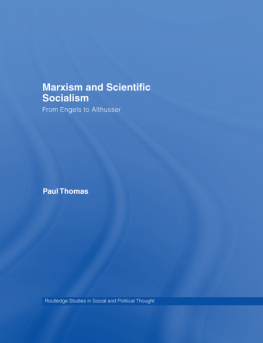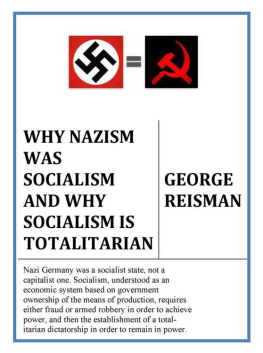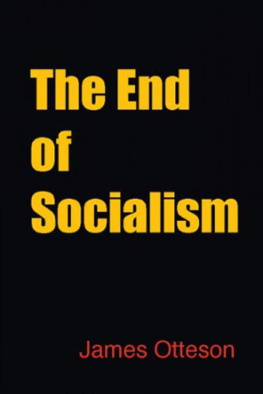H. G. Wells - Socialism and the Family
Here you can read online H. G. Wells - Socialism and the Family full text of the book (entire story) in english for free. Download pdf and epub, get meaning, cover and reviews about this ebook. publisher: Start Publishing LLC, genre: Politics. Description of the work, (preface) as well as reviews are available. Best literature library LitArk.com created for fans of good reading and offers a wide selection of genres:
Romance novel
Science fiction
Adventure
Detective
Science
History
Home and family
Prose
Art
Politics
Computer
Non-fiction
Religion
Business
Children
Humor
Choose a favorite category and find really read worthwhile books. Enjoy immersion in the world of imagination, feel the emotions of the characters or learn something new for yourself, make an fascinating discovery.
Socialism and the Family: summary, description and annotation
We offer to read an annotation, description, summary or preface (depends on what the author of the book "Socialism and the Family" wrote himself). If you haven't found the necessary information about the book — write in the comments, we will try to find it.
Socialism and the Family — read online for free the complete book (whole text) full work
Below is the text of the book, divided by pages. System saving the place of the last page read, allows you to conveniently read the book "Socialism and the Family" online for free, without having to search again every time where you left off. Put a bookmark, and you can go to the page where you finished reading at any time.
Font size:
Interval:
Bookmark:

Start Publishing LLC
Copyright 2020 by Start Publishing LLC
All rights reserved, including the right to reproduce this book or portions thereof in any form whatsoever.
First Start Publishing eBook edition.
Start Publishing is a registered trademark of Start Publishing LLC
Manufactured in the United States of America
10 9 8 7 6 5 4 3 2 1
ISBN 978-1-64974-009-0
by H. G. Wells
These are two papers written by Mr. H. G. Wells. The first was read to the Fabian Society in October, 1906, under the title of Socialism and the Middle Classes. The second appeared first in the Independent Review. Together they state pretty completely the attitude of Modern Socialism to family life.
In this paper I am anxious to define and discuss the relationship between three distinct things:
(1) Socialism, i.e. a large, a slowly elaborating conception of a sane and organized state and moral culture to replace our present chaotic way of living,
(2) the Socialist movement, and
(3) the Middle Classes.
The first is to me a very great thing indeed, the form and substance of my ideal life, and all the religion I possess. Let me make my confession plain and clear. I am, by a sort of predestination, a Socialist. I perceive, I cannot help talking and writing about Socialism, and shaping and forwarding Socialism. I am one of a successionone of a growing multitude of witnesses, who will continue. It does notin the larger sensematter how many generations of us must toil and testify. It does not matter, except as our individual concern, how individually we succeed or fail, what blunders we make, what thwartings we encounter, what follies and inadequacies darken our private hopes and level our personal imaginations to the dust. We have the light. We know what we are for, and that the light that now glimmers so dimly through us must in the end prevail. To us Socialism is no piece of political strategy, no economic opposition of class to class; it is a plan for the reconstruction of human life, for the replacement of a disorder by order, for the making of a state in which mankind shall live bravely and beautifully beyond our present imagining.
So, largely, I conceive of Socialism. But Socialism and the Socialist movement are two very different things. The Socialist movement is an item in an altogether different scale.
I must confess that the organized Socialist movement, all the Socialist societies and leagues and federations and parties together in England, seem to me no more than the rustling hem of the garment of advancing Socialism. For some years the whole organized Socialist movement seemed to me so unimportant, so irrelevant to that progressive development and realization of a great system of ideas which is Socialism, that, like very many other Socialists, I did not trouble to connect myself with any section of it. I dont believe that the Socialist idea is as yet nearly enough thought out and elaborated for very much of it to be realized of set intention now. Socialism is still essentially education, is study, is a renewal, a profound change in the circle of human thought and motive. The institutions which will express this changed circle of thought are important indeed, but with a secondary importance. Socialism is the still incomplete, the still sketchy and sketchily indicative plan of a new life for the world, a new and better way of living, a change of spirit and substance from the narrow selfishness and immediacy and cowardly formalism, the chaotic life individual accident that is human life to-day, a life that dooms itself and all of us to thwartings and misery. Socialism, therefore, is to be served by thought and expression, in art, in literature, in scientific statement and life, in discussion and the quickening exercise of propaganda; but the Socialist movement, as one finds it, is too often no more than a hasty attempt to secure a premature realization of some fragmentary suggestion of this great, still plastic design, to the neglect of all other of its aspects. As my own sense of Socialism has enlarged and intensified, I have become more and more impressed by the imperfect Socialism of almost every Socialist movement that is going on; by its necessarily partial and limited projection from the clotted cants and habituations of things as they are. Some Socialists quarrel with the Liberal Party and with the Socialist section of the Liberal Party because it does not go far enough, because it does not embody a Socialism uncompromising and complete, because it has not definitely cut itself off from the old traditions, the discredited formul, that served before the coming of our great idea. They are blind to the fact that there is no organized Socialism at present, uncompromising and complete, and the Socialists who flatter themselves they represent as much are merely those who have either never grasped or who have forgotten the full implications of Socialism. They are just a little step further, a very little step further in their departure from existing prejudices, in their subservience to existing institutions and existing imperatives.
Take, for example, the Socialism that is popular in New York and Chicago and Germany, and that finds its exponents here typically in the inferior ranks of the Social Democratic Federationthe crude Marxite teaching. It still awaits permeation by true Socialist conceptions. It is a version of life adapted essentially to the imagination of the working wage earner, and limited by his limitations. It is the vision of poor souls perennially reminded each Monday morning of the shadow and irksomeness of life, perpetually recalled each Saturday pay time to a watery gleam of all that life might be. One of the numberless relationships of life, the relationship of capital or the employer to the employed, is made to overshadow all other relations. Get that put right, expropriate the idle rich, transfer all capital to the State, make the State the humane, amenable, universal employerthat, to innumerable, Socialist working men, is the horizon. The rest he sees in the forms of the life to which he is accustomed. A little home, a trifle larger and brighter than his present one, a more abounding table, a cheerful missus released from factory work and unhealthy competition with men, a bright and healthy family going to and fro to the public free schools, free medical attendance, universal State insurance for old age, free trams to Burnham Beeches, shorter hours of work and higher wages, no dismissals, no hunting for work that eludes one. All the wide world of collateral consequences that will follow from the cessation of the system of employment under conditions of individualist competition, he does not seem to apprehend. Such phrases as the citizenship and economic independence of women leave him cold. That Socialism has anything to say about the economic basis of the family, about the social aspects of marriage, about the rights of the parent, doesnt, I think, at first occur to him at all. Nor does he realize for a long time that for Socialism and under Socialist institutions will there be needed any system of self-discipline, any rules of conduct further than the natural impulses and the native goodness of man. He takes just that aspect of Socialism that appeals to him, and that alone, and it is only exceptionally at present, and very slowly, as a process of slow habituation and enlargement, that he comes to any wider conceptions. And, as a consequence, directly we pass to any social type to which weekly or monthly wages is not the dominating fact of life, and a simple unthinking faith in Yes or No decisions its dominant habit, the phrasings, the formul, the statements and the discreet omissions of the leaders of working-class Socialism fail to appeal.
Font size:
Interval:
Bookmark:
Similar books «Socialism and the Family»
Look at similar books to Socialism and the Family. We have selected literature similar in name and meaning in the hope of providing readers with more options to find new, interesting, not yet read works.
Discussion, reviews of the book Socialism and the Family and just readers' own opinions. Leave your comments, write what you think about the work, its meaning or the main characters. Specify what exactly you liked and what you didn't like, and why you think so.


